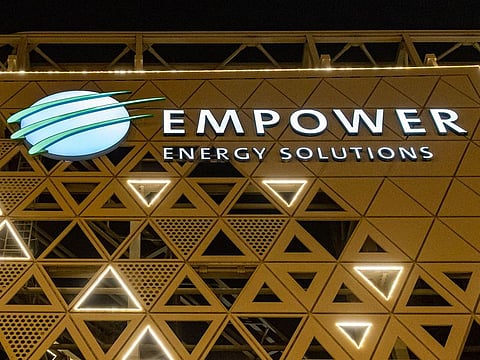Dubai’s Empower IPO will be a draw for institutional funds
Dubai district cooling company has the credentials for funds seeking solid value investing

In a widely circulated paper ‘Explaining the Demise of Value Investing’, Baruch Lev and Anup Srivastava argue that the primary reason why classic value stocks have underperformed has been because of lower interest rates that prevailed for the better part of two decades. Now that this variable has been unwound, is it safe to assume that value stocks - defined by low price earnings ratios - will return to their outperformance mode?
To reach that conclusion is to misunderstand what value investing is. The best businesses to own are those over an extended period can employ incremental rates of capital at high rates of return. In other words, businesses that take advantage of their capital base and other margins of safety the regulatory landscape offers and capitalize on the compounding effect will be the ones who will turn out winners over the longer term.
Cost of capital
It is in this context that investment portfolios must be constructed and it is through this lens that the current wave of IPOs in the UAE must be looked at. As the cost of capital starts to rise, there will be a natural tendency to move away from the classical growth paradigm, something that we have already witnessed for the most part in the Western equity markets. In a rising interest rate environment, the cost of capital becomes the key variable and companies that generate returns above that measure sustainably will be the ones able to generate value for their shareholders.
In simplistic terms, the way to gauge that metric is to look at the cash flow the company is able to generate alongside its growth potential. In other words, the starting point is to look at the return on invested capital first, and then to look at the return on the marginal capital rate less the cost of capital. If the return on the initial invested capital is lower than the cost of capital, then growth rates will do little to overtake the shackles that are in place a priority.
In a nutshell, this is what explained the boom-bust model of the dotcom phenomena and the more recent post-Covid rise and fall in capital values. In both cases, companies that could not overcome the cost of capital were the ones that had to eventually succumb to the laws of financial gravity.
A magnet for pension funds
By now, it will be of little surprise to expect that Empower, like those before it, will also be largely oversubscribed. Investors have clearly latched on to the bandwagon, essentially looking at a continuation of a bet for ‘Dubai Inc’, as larger pools of institutional monies make their way to this part of the world. Perhaps more importantly, with recent IPOs, we have seen institutional pension funds that have allocated capital, as part of efforts to offer expat investors the ability to take care of their Liability Driven Investing needs in this environment and to make the country attractive for retirement purposes.
Undoubtedly, Empower comes in the middle of just ‘pure play’ conservative cash cows and the growth plays. This brings to the fore the widening array of choice that investors have and with the expanding bullseye that they can now aim at. Clearly, with the emphasis on management and efficiency with increasing sales growth being delivered, there is also the point to be made regarding the deepening of capital markets underway.
Empower is a valuable addition to that growth story and likely to be a cornerstone investment for portfolios in years to come.




